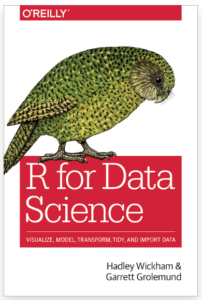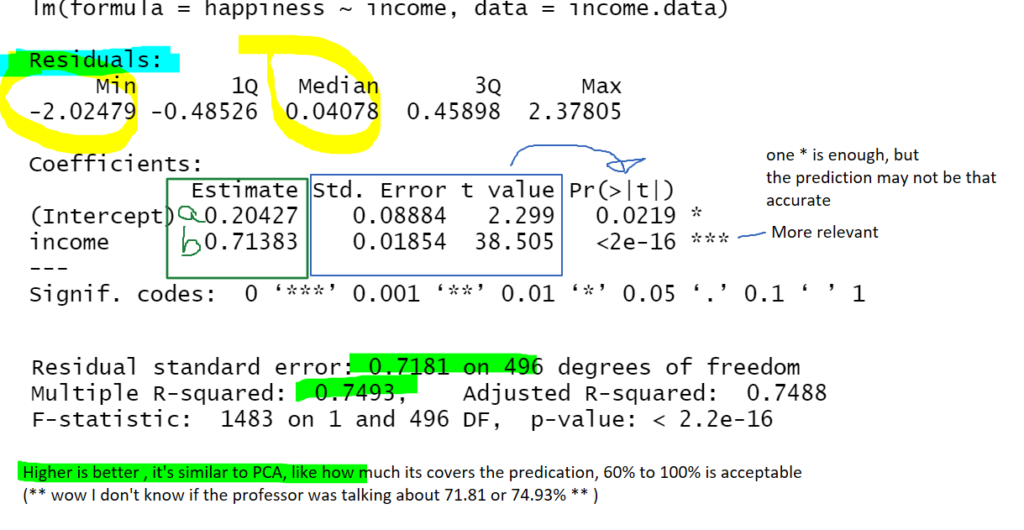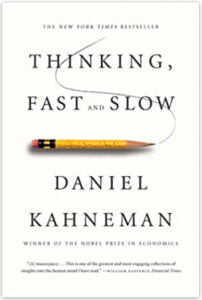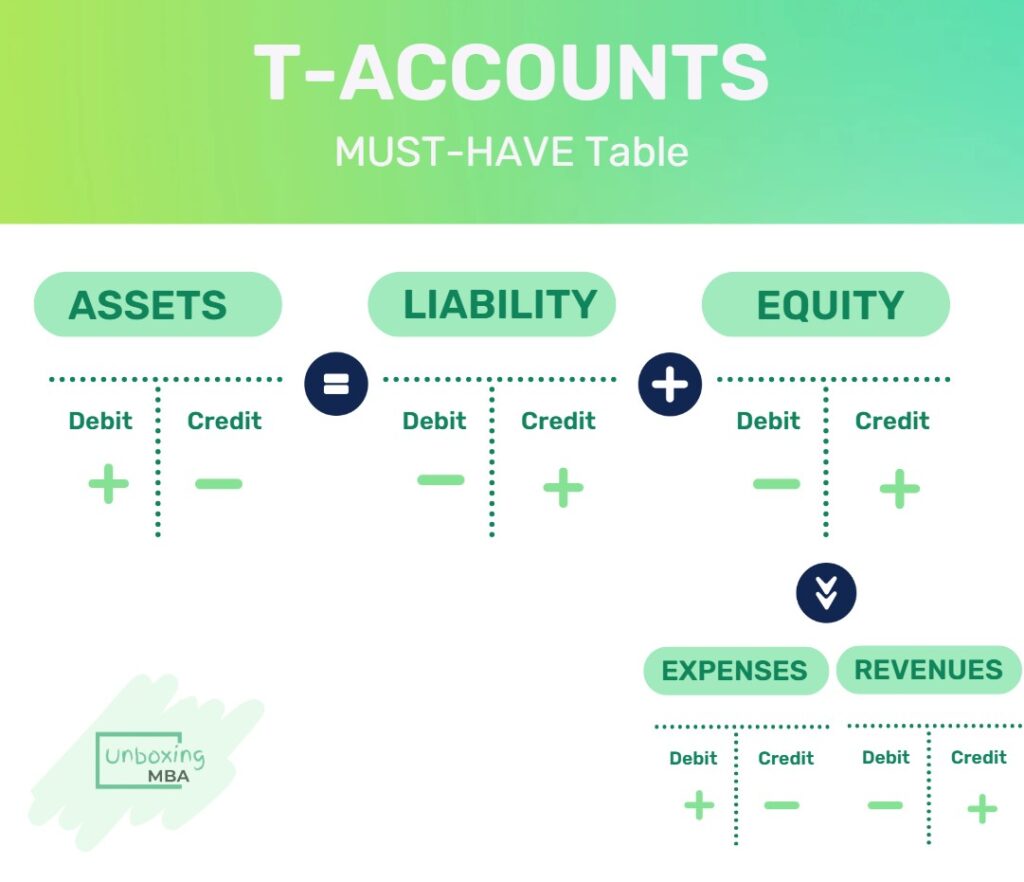Blog Applichem (A) Case Study Solution, Step by Step with...
Read MoreBlog

MBA Core Courses Review
Unboxing MBA | An Asian Girl in Spain for an MBA!
Madrid, Spain, last update 2023-07
In this post, you will learn about :
♞ What I’ve learned in each core course
♞ Which free online resources did I use to prepare myself?
Everything here is my authentic learning experience; I hope you will enjoy reading about my MBA journey. If you do, buy me a coffee. It will be my great motivation to keep sharing! ⇒ ⇒ ⇒ Thankii •ᴗ• ⇐ ⇐ ⇐
What I’ve learned and how you can prepare beforehand
Sure, there is a curriculum with descriptions of each course, but to me, those materials only give a minimal taste of an MBA. What am I actually going to learn? How can I prepare myself in advance?
Going to school is not the same as going to work. Academic knowledge is another story, regardless of how much work experience I have. I’m not belittling myself; I have pride in things I’m good at. But there is always something, like algebra, which no longer exists in my mind (or never existed), as it’s not related to what I’ve worked on. So how could I understand CAPM in financial classes and jump directly into the discussion? It’s embarrassing to sit in class like a muggle. ( Don’t know what CAPM is? Then you know how nervous I was ).
Maybe those theories are easier for people who just got out of university, but as an MBA, a course for professionals with work experience, it focuses more on discussion and practical application. You should better prepare yourself so as to get into the discussion proactively. You will learn much more from peer interaction.
It’s also about confidence. We had a math exam in the first week of the course. Some of us left half of the papers blank. It’s a horrible start for them. One even considered quitting the course. I was glad I prepared myself in advance since I knew how weak I was in numbers.
Having said that, going for an MBA is not solely for academic performance; you also need to enjoy networking and alcohol! It’s way better to go explore the city at the weekend than to sit at home watching tutorial videos. So, take my word for it: figure out what you are going to learn (at least) and allocate your time for all the goodies!
No matter how many times you read through the curriculum and course content, you’ll never learn about the teaching styles of professors. If they like inviting people from the business world as guest speakers or if they like using up-to-date news as teaching materials, how do they get that unofficial but useful information? Easy! Go talk with alumni; those who took the course just one year before you have the most recent experience to share! How do I find them? Easier! I’ll share some tricks for connecting with alumni in my next post! Feeling awkward about talking with strangers? You know, I’d love to share how I do it!
Core Courses
The majority of core courses take place in the first semester / year, and they’re intense (no doubt); never underestimate the pressure and workload, especially if you’re unfamiliar with financial formulas or data analysis programs like SPSS or R Studio (never heard of those programs? Perfect! Keep going with me!)
List of MBA Core Courses:-
- Financial Mathematics ♣
- Quantitative Methods ♣
- Organizational Behavior
- Economics for Business ♣
- Principles of Accounting
- Managerial Accounting
- Strategic Management
- Market Analysis ♣
- Marketing Management
- Data Analysis and Visualization ♣
- Operations Management
- Managing People in Organizations
- Leadership
- Financial Economic
- Corporate Finance
Financial Mathematics
It says it’s a preparation course with “basic” financial theories and formulas. It’s only basic for those who have an engineering or math background. Don’t expect the professor to teach slowly; it’s a master’s course at the end of the day. Yes, we are not required to calculate the 3-year IRR manually, but we should know what the rate of return and discount rate are in general (both represented as “r” in formulas).
There were only 3 classes, each lasting 2.5 hours, so it’s only 7.5 hours in total. But we had a problem set with 6 exercises (~15 questions) to submit on day-3 and an exam on day-4 (to be precise, we had 2 exams on that day). Not comfortable with the pace? Welcome on board, it’s MBA!
If you don’t have a clear concept of the time value of money, you are fuxked! You will not understand (in a timely manner) any discussion or argument in the class. You may stay silent and google afterward, or keep asking desperately what the hell is that, but it’s not fun.
Math is not that horrible (even though I was/am not familiar with algebra), it just takes time to fully understand how it works. For instance, the French method is not a science topic. If you are willing to spend an hour learning what it is and how to calculate it on Excel at home, during the class, you will be able to get the logic behind the formula easily. With this foundation, you can expand on the application in mortgage loans and car loans. Imagine if a classmate shared how he/she used this trick to pay off his/her mortgage at 35 and how much interest he/she saved! How much fun will this class be?
So, how to prepare for the math/financial classes? I wanted so much to have a plug in my brain and load all the algebra and theories inside. But sadly, the technology is not that advanced (yet). Luckily, we have the amazing internet ( and you have me! ). There are many FREE resources, video tutorials, the key is to understand the logic. Once you get the concept of the timeline, no matter if it’s moving forward (Future Value), or backward (Present Value), you know how to manage!
These are 3 tools I relied on, check it out:
If you have no idea what I’ve mentioned so far, go to Quantic (it’s not an advertisement, although I really wish they would pay me). It’s a FREE online learning platform. You don’t have to enroll in their MBA (I won’t stop you if you want to). All you need to do is register an account and access its MBA preparation classes. What’s special? It’s not video or animation, it’s more like a game. You’ll learn from pictures and stories. There are tasks like multiple choices, puzzles, fill in the blanks. It really helps in understanding the concept of the time value of money.
If you already have a certain understanding, check MBA Bull out ( again, it’s not an advertisement, I’ll get nothing if you buy its paid service, so before you really want to pay for its course, maybe, just maybe, buy me a coffee •ᴗ•). It has many free animation videos explaining financial math. It is a great review before the course starts.
If you have something specific to check with, or you want to review the foundation ( why don’t they pay me! ), go to Investopedia. There is a detailed explanation with examples in both short videos and plain words. The only thing I don’t like is, I have to wait for a 15-to-30-second advertisement before the 2-minute tutorial video.
Want to thank me for the recommendation? A cup of coffee will suffice! ⇒ ⇒ ⇒ Thankii!! •ᴗ• ⇐ ⇐ ⇐
Quantitative Methods
Same as Financial Mathematics, we only had 3 classes that lasted 2.5 hours each ( and an exam on day-4 )! To me, it’s a WOA preparation course. Officially, it was my first time learning about data science ( youtube videos don’t count ). We learned the basics of R studio, an open-source software for data analysis and visualization. It’s free software, and it’s more modern than SPSS ( a traditional data analysis tool ).
I didn’t prepare much for this course, I know there are many different languages in coding, so I don’t want to have any default settings in my mind. I saw some classmates frustrated because what we learned in the class was a bit different from what they usually use.
Here is an idea of the class. From a set of 10 years of property data, we tried to find out which factors were related to the property price, like location, size, number of bedrooms, etc. From there, we had a model to estimate a reasonable price for a house. Ring any bells? Yes, it’s linear regression, but we did it in R.
I had read about the difference between qualitative and quantitative data, discrete data, and continuous data beforehand. I suggest you do the same, just Google it. It’s the foundation concept of R and also SPSS. Also, having a quick look at the mean, mode, and standard deviation will help! Check out the statistics preparation course at Quantic if you know nothing about those statistical measurements.
If you are curious about coding, go to R-Studio’s official website. There are many FREE resources and books. I suggest skimming through “R for Data Science“, the one with a bird on the cover; it will give you an initial picture of R.
What you have to prepare the most for the course is how to take notes. I used OneNote to take screen shots and write my notes on them, but they were messy (maybe it’s my own problem). I had difficulties reviewing my notes and recalling the logic behind them. I saw others mark notes directly on the coding page by using “#”.
Organizational Behavior
Definitely one of the most interesting but intensive courses! Interesting because it’s about the biases we have and the behaviors we act upon in groups or individually; intensive because there were 9 case studies in 10 classes!
There are various theories, some of which are worth digging deeper into. But there was limited time in the class, so if you want to go further on one topic, seize the chance during the break and discuss it with the professor! In one class, we talked about how to announce good and bad news. Imagine you were the director of a company. Would you announce all good and bad news on the same day? Or separate them into two days? If so, does the good news come first or the bad? It’s very intriguing, and there are theories to back it up!
The challenge was to read every case study before class. Sounds silly? Some business schools only have half-day classes, but for us, it’s a full day, from 9am–5pm, from Mon–Fri. It’s very intense. You will be overwhelmed by many subjects, assignments, and group work.
Reading a 15-page case study was a tough task for me! English is not my mother tongue, and Harvard cases use a lot of fancy vocabulary, I hate checking the dictionary as the Ctrl+C function is not allowed in those protected case pdfs! But I couldn’t control myself from checking the dictionary. I wanted to ensure I fully understood all the details. It’s a matter of time and how dedicated you are.
I remember one time, a group presented a case starting with a quiz using Kahoot, and you can see how many people got the correct answer. It was so embarrassing that the result was horrible. Many of us didn’t read that case. Maybe you will think it’s not a good way to present, but to think of it another way, it’s also part of the practice. We cannot assume our clients will read all the material before the meeting, so how do we begin the discussion? I’ve seen a brilliant presentation. They summarized the case study with a short detective video. I’ll share more great presentations with tools like Kahoot in another post. Want my updates asap? Get me a coffee! ⇒ ⇒ ⇒ Thankii!! •ᴗ• ⇐ ⇐ ⇐
My advice on this course is to be honest in the discussion. One said “Confidence doesn’t come from knowing you’re right, but from not being afraid to be wrong“. Like will you fire people during COVID-19, no one can tell if it’s right or wrong, don’t get bound by the “good person card”. A professor once reminded us that, those case studies were published because those were successful cases, there were many that did the same or similar but failed. There is no formula for success, we need to learn what to take into account when we make decisions, and that’s it.
It’s a very practical course. We can apply the same theories in leadership and HR management, how to lead a better team, or in marketing, how to better influence consumers’ decisions. If you have time, I suggest you read “Thinking, Fast and Slow” by Daniel Kahneman. You will find a lot of things that match this course.
Economics for Business
This course surprised me a lot. It’s not only about demand and supply; it helped me link things up. Like game theory + price elasticity in decision making; should we always be the first mover to launch new designs / products? Or should we follow our competitors’ designs / products? Of course, reality is much more complicated, but it helps us think more comprehensively when making decisions.
We’ve learned about transfer pricing, how it links to performance bonuses… How insurance companies set the premium and look for quality clients, etc. We’ve also looked into salary points and training from an economic perspective!
The tough part was, even though there were only 10 classes, we had to go through all those practical topics, 4 case studies, 2 midterm exams, and 1 final exam. ( You’ll survive, haha, if not… •ᴗ•)
I read a lot of economic / financial books before. Usually each topic is independent. If economics is not your strength, check out “EconplusDal” on youtube. I like the way he explains the relationships between variable costs, fixed costs, average costs, and marginal costs.
Spend some time thinking about how to take notes. There are many graphs. Google Slides could be a good option. I used OneNote and it’s not “fast” enough for me. Look at my draft (don’t laugh).
Principles of Accounting
Professor told us at the beginning that he was not going to prepare us to be accountants, but we needed to know how things work in order to manage them. The final project was to compare three listed companies’ performance from their annual reports. The challenging part was that it was teamwork; each of us only had 2 minutes to present in the final 10th class (no space for bullshit).
This is a must-have table. If you merely know 1% about accounting, I strongly recommend you take the FREE accounting preparation lessons in Quantic; no videos, just a story about running a business, and you’ll learn all the basics in between.
Tricks for this subject? Well, put everything in Excel and make models of all types of statements. So, no matter what kind of numbers are provided, you can for sure balance the sheets. I have mine; want it? I’ll put them on the shelf soon!
I also suggest you read “How to Read a Financial Report” by John A. Tracy; it talks more about how to window-dress and how to see the devil between the lines. If you have a huge passion for analyzing annual reports, go for the “Valuation” class.
By the way, I don’t know what language you are using in your Microsoft Office; maybe it’s time to change it to English and get used to it; otherwise, you’ll encounter problems asking for help from others (we all need help no matter how smart we are, right?)
Managerial Accounting
After we got the foundation of accounting, we went further to make production decisions. We learned from mini cases in these 10 lessons, like calculating the break-even points and how many items need to be sold to achieve a target profit.
Then we moved on to choosing what to produce and the price level. The professor reminded us that, we shouldn’t only look at profit maximization; we should also take into account operations, flexibility, and contingency. Check carefully the cash level; do we need a short-term loan from the bank? Is it a bad thing?
What we decided at the end of the day will affect the numbers in the annual report, is how Managerial Accounting and Principles of accounting are linked.
Strategic Management
Yes, it’s about PESTAL, SWOT, Porter’s 5 Forces, etc. But it’s also about brainstorming; don’t “just” Google the SWOT of Zara; this course taught us how to think outside the box; we are capable of generating new ideas and new insights; be the original.
We looked at Cokes War, Streaming War, Fast Fashion War, etc., both classic and modern cases. There are many analyses of those companies on the internet, but honestly, they are boring because they are more or less the same. The professor gave us many ways to see things differently. Once we discuss Lego, is Lego too dependent on licensed characters? How does Lego survive in this digital game trend?
There are no correct answers, as long as you can support your point of view. It’s also about sharing your ideas and listening to others’ ideas. Times will prove it. Imagine that 10 years later, in the alumni gathering, we sit down and talk about the success of Coca-Cola and Pepsi again. Maybe Coke no longer exists in the market at that time, who knows.
So, read more news + respect others’ ideas.
Market Analysis
To conclude, it’s about conduct questionnaire > data analysis > make decision or improvement. We use SPSS to analyze data. It’s a traditional tool; it’s not free, but many companies use it. This is a broad topic to be covered in 10 lessons.
We practiced through a real set of satisfaction data from a restaurant to figure out the correlation between each factor, like location and number of food options, and customer satisfaction to see if service really matters in take-away business. Data will tell. With the result, we planned how to improve the business and evaluate the room for a price rise.
I didn’t prepare much for the course, but understanding qualitative data, quantitative data, discrete data, and continuous data helps.
Presenting data can be very boring. One time, after half a class of presentation, the professor asked us to share the key ideas just presented (surprise!). I could barely recall 1 or 2, so I’ve learned that even though it’s presenting data, make it in the audience’s language, make it interesting; if it cannot stay in the audience’s mind, it’s meaningless.
Marketing Management for Strategic Advantage
It’s a practical course for being a consultant, but prepare to be overwhelmed by assignments and presentations! We really looked at the financial data and forecasted the revenue to decide which marketing strategy we should choose.
The professor brought us lots of real-life cases; it’s interesting. We make decisions rationally, but the market may not react rationally. One case was that a beer was set at a higher price and was planned to target the ladies’ market, but ended up being more popular in the blue-collar market. There was no right or wrong; we can research, plan, and forecast, but we cannot control the market.
We discussed up-to-date cases, like Uber and Uber Eat. How do you think about their positioning and brand image? Don’t rely on Google just to be the original; you will enjoy it more when your point of view gets recognized by your professor and your fellow students.
Some theories we learned from organizational behavior can be applied in marketing; it’s amazing to connect all the dots together. Read these 2 books if marketing is your thing; you can’t miss them:
- Made to Stick: Why Some Ideas Survive and Others Die – by Chip and Dan Heath
- The Tipping Point: How Little Things Can Make a Big Difference – by Malcolm Gladwell
Professor always sets a time limit in our presentation, 6 mins max, I LIKE IT SO MUCH, indeed, a short presentation is more difficult than a long one. When there is more than 1 presenter, how do you stay in the audience’s mind?
Data Analysis and Visualization
It’s all about R-studio, with a full 10 lessons of coding and graphing. It’s difficult, I mean it (even though I got an almost full score).
Depending on how far you want to go, for the same set of data, we can perform data cleaning in Excel, then import it into R, or do everything from scratch in R. If you want to go for the advanced level, check out the FREE book “R for Data Science” on the R-studio official website for the foundation, so you can go further with the professor.
The Quantic Statistics preparation course has many basic statistical measurement knowledge concepts like mean, mode, and standard deviation; check it out before the course (no one wants to be a muggle in the class).
There were many assignments and projects, like using real statistical data from the World Bank to analyze happiness levels between countries. It’s fun to present our findings in colorful graphs (cool stuff), but it’s not fun when it’s not happening, and we had to find out the errors (a quick fix was to re-do everything).
Operations Management
In 10 lessons, we had 2 professors and 2 guest speakers. The course was divided into qualitative and quantitative parts, and it’s partly linked with project management.
The qualitative part was not that difficult; it was more or less common sense. You can read “The Lean Startup” by Eric Ries, it’s more interesting than reading about Toyota (personal opinion). We discussed Tesla. First, understand how it takes Tesla 2 years to deliver its cars to clients, then brainstorm solutions. The world just recovered from COVID; we also discussed the shortage of chips, the lack of space to park airplanes.. etc.
The quantitative part was a bit difficult but extremely useful, like when we looked into the operation flow of a specialized clinic, did some calculations, and found out the bottleneck, then made a proposal on performance improvement.
There are many similar terms (like flow time, cycle time, and throughput rate). I read a textbook to clear my confusion:
- Cachon and Terwiesch . Matching Supply with Demand: An Introduction to Operations Management – McGraw Hill. 3rd Edition. 2013
It’s free from the library of the university, try your luck to find it in your local library.
Or if you find some great YouTube channels or websites, let me know!
Managing People in Organizations
We also had 2 professors in this 10-lesson course. The funny thing is, I gained a deeper understanding of the importance of strategies and marketing from this class. I figured out how everything connected within the organization; all things have to be aligned to the same goal in order to reach it!
You’ll need to think about life examples. I give you one for free here, get me a coffee if it’s useful to you.
Think about it, how do you make a selection decision for a firefighter? How important are personality / physical strength, and experience?
We also covered many controversial topics, like the trend of working remotely, how young professionals build up their network in a remote setting, how young professionals manage people who are older than them, etc. I wish we could also cover how to fire people.
Don’t bind yourself with the “good person card”, Be real. I’ll take more snack breaks in a remote setting, and some classmates will watch football games. It made our discussion on how to manage in a remote setting more fun.
Leadership
Honestly, I didn’t have much expectation for this course, and it did surprise me.
We covered negotiation skills; it’s useful in B2B; we had a lot of simulations to practice; and we compared the results between teams. It’s also applicable in B2C; have you heard about the Rule of 7? Consumers need to hear a marketing message at least 7 times before they take action to buy. So how do we plan for these 7 times approaches? Interesting huh?
We were assigned to work with different teammates in these 10 lessons, and as everyone has a different leadership style, it’s good to listen and observe how others give comments or feedback.
Some topics were really intriguing, like the downside of high EQ, can you think of any?
The whole course was more on interpersonal skills, to get the most out of it, be active in the practices. I was a bit “resisting” the role play game (maybe I’m shy ha..), but it really pushed me to think, like how to tell someone “you’re really good, but this time we decided to promote others. Keep up the good work!”.
Financial Economic
One of my favorite subjects, we’ve learned things related to investment from an investor’s perspective, like how risk and return always go hand in hand, how to set up a portfolio with risky and risk-free products, and how to calculate reasonable option prices. It’s totally different from my own trading style; maybe you will not be convinced, but it’s always good to see things from another angle.
It was a short course, only had 5 lessons, and we needed to deliver 2 problem sets, The problem sets were more difficult than the exam, but we had time to think and discuss. Fair is fair.
If you have 0 investment experience, I suggest you at least understand how stocks and bonds work, otherwise, you will not understand options. I’m not a math person, remember I’m not good at algebra? But I have my own way to study formulas, I put them in a logical way and remark with different situations. I’m proud to get a 10/10. Want my notes? jaja •ᴗ•
Corporate Finance
Another 5-lesson short course with 2 problem sets and 1 exam It’s also related to investment, but this time from a corporation’s perspective. My nose bled when I was discussing one of the problem sets with a teammate; it’s really tough.
We compared companies with and without loans to see how it differs in the world with or without taxes. I was super confused. We also looked deeper into bond dividends and stock dividends; the Gordon Growth Model blew my mind.
But I survived; Modigliani and Miller’s Propositions took me a long time to understand, so if you have time now, check it out. You know there is a shortcut, right? •ᴗ•
It’s amazing to write all these subjects down, I’m impressed with how much I’ve learned. I hope my 4,300 words bring some value to you. Yes, taking an MBA is not only about grading, but it’s maybe the only MBA I’d take in my life, I want to see how far I can reach. Have questions? Buy me a coffee and leave me a message 😉
#MBACoreCourses #MBACoursesReview #MBASubjects #MBASubjectsReview #UnboxingMBA #FinancialMathematics #QuantitativeMethods #OrganizationalBehavior #EconomicsforBusiness #PrinciplesofAccounting #ManagerialAccounting #StrategicManagement #MarketAnalysis #MarketingManagementforStrategicAdvantage #MarketingManagement #DataAnalysis #Visualization #OperationsManagement #ManagingPeople #Leadership #FinancialEconomic #CorporateFinance #StudyMBA #MBAStudy #MBAtips #MBAstudytips #Studyabroad #studyinspain
If my sharing makes some difference to your life, you could absolutely make the same difference to mine. As little as $5, you'll make my day!










